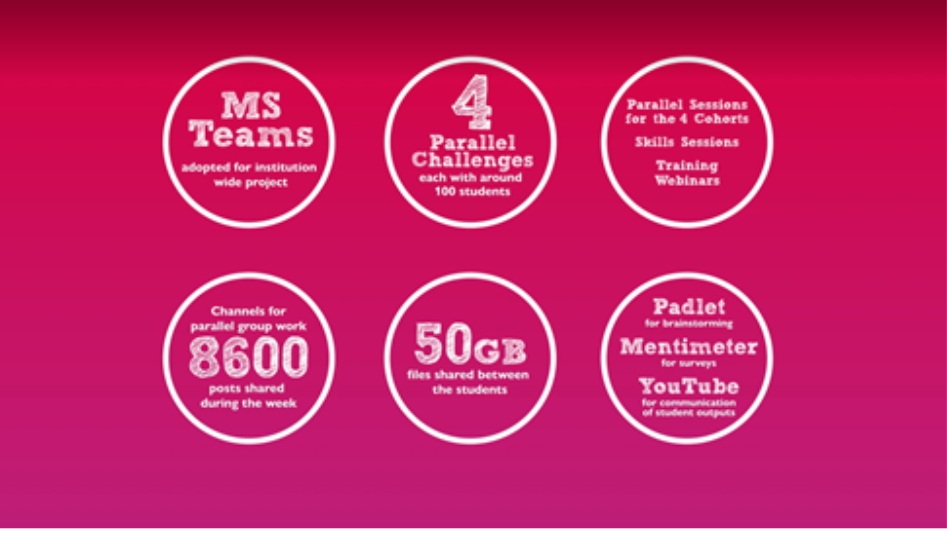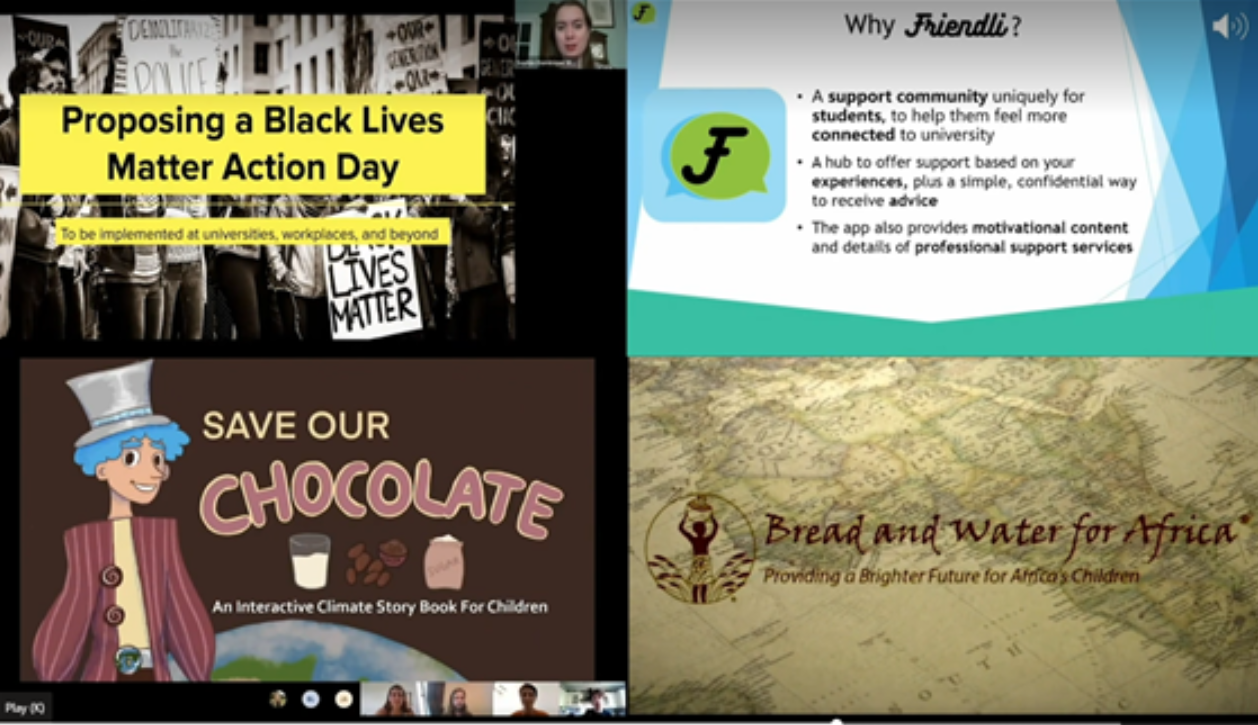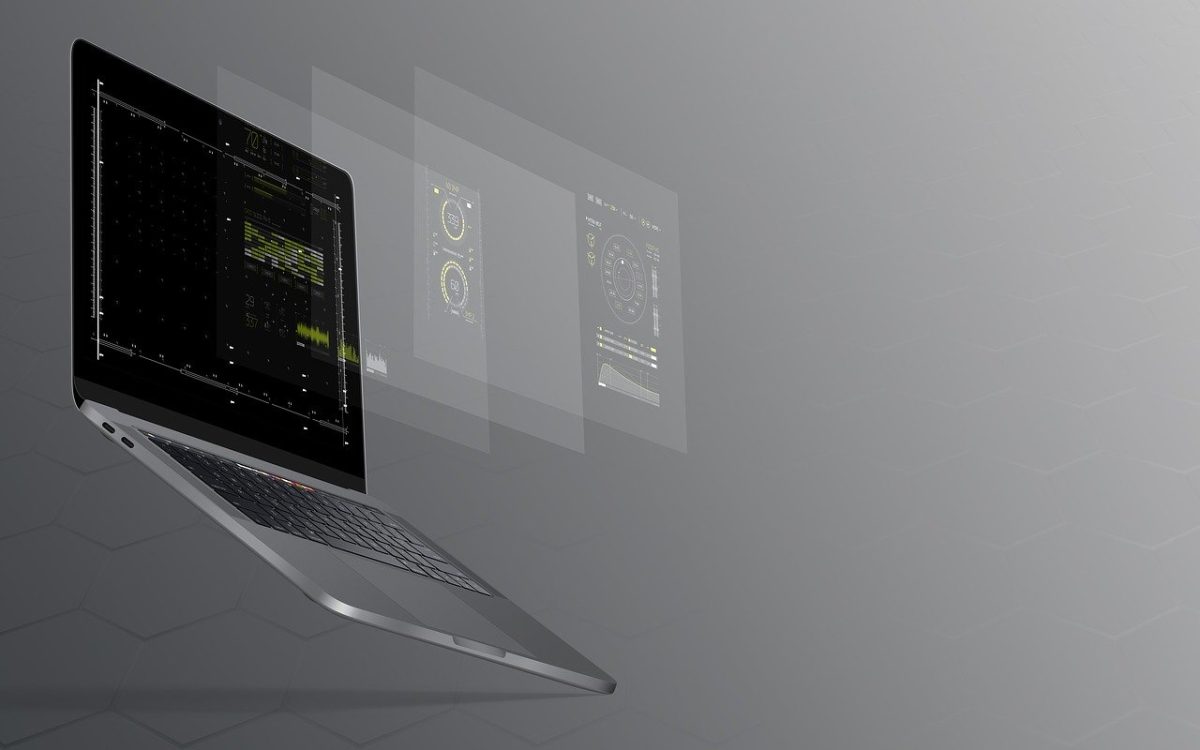Challenges Online: pivoting to digital learning during the pandemic
Dawn Lees, Anka Djordjevic and Simon Pardoe from University of Exeter share how moving an extra-curricular programme online removed geographical barriers to student participation and reduced carbon emissions.
Authors: Dawn Lees, Anka Djordjevic, Simon Pardoe
What exactly was the shift in culture and/or organisational practice that you wish to highlight?
Grand Challenges is an extra-curricular programme managed by the Career Zone that has run at the University of Exeter since 2012 (Ryan & Tilbury, 2014, Burkhill, 2015, Houghton & Anderson, 2017, Anderson et al., 2021, Lees et al., 2022 in press). Challenges Online was developed in 2020 to allow students to undertake collaborative, meaningful research-led enquiry on wicked problems while working remotely and virtually during the global pandemic. In 2020, 364 students in 16 time zones participated and in 2021, 337 students across 10 time zones engaged with the programme, which in pre-pandemic years was offered only as a face-to-face, campus-based initiative.
Each year, a number of ‘Challenges’ are offered. Students participating in 2021 worked on one of five challenges rooted in the United Nations Sustainable Development Goals; social inequality, fighting fake news, climate and environment emergency, future food, and planetary health. Because these are areas of active research amongst Exeter’s world-leading experts, with significant impact on current and future ways of life, these challenges provide students with an authentic learning opportunity.
Each challenge team was led by an academic specialist and supported by an inter–disciplinary group of educators and guest speakers. Contributors could answer both content-specific questions (i.e., those related to the SDGs) as well as those related to the project work itself (e.g., how best to undertake research, what output to create, and how to use relevant tools to produce resources). Students were able to learn from researchers at the cutting edge of each challenge theme, while also engaging in peer teaching within the context of the project.
Delivery in 2020 was three months after the start of the pandemic, giving the team very limited time to transition to online learning, using digital technologies that had not been tested at this scale or complexity within the institution at that time (Figure 1).

What did ‘working well’ look like?
The move to online delivery enabled not only Exeter students at different campuses to overcome geographical barriers. In 2020 it allowed students from three partner institutions to participate; from the Universities of South Florida, Manheim and Leiden. This is estimated to save at least 20 tonnes of carbon that would have been required to fly these students to the UK to participate in person. Thirty Degree Apprentices from JP Morgan, studying at Exeter also participated.
The more flexible form of delivery also enhanced partnerships with other experts at the university – including the Student Start-up team and the Environment and Climate Emergency team, who were able to provide expertise and training that was integrated into the programme in the form of workshops, lectures, and masterclasses.
Challenges Online has tangible employability benefits, giving students the opportunity to network with academics and employers and develop skills like project planning, teamwork, leadership, communication, and digital expertise. While some of this expertise is developed organically as the projects proceed, Challenges Online also offers a set of optional online skills sessions that participants could attend if they wanted some targeted, formal developmental support. These ran alongside social networking events that give Challenges participants a means of connecting in a more relaxed way outside of their virtual ‘classrooms’. Through this approach, students are able to develop their employability whilst being embedded in discussion about wicked problems and the future of work. Outputs included apps, social media campaigns, videos, blogs and games (Figure 2).

Student feedback on the event was overwhelmingly positive:
- Overall satisfaction amongst students was 94%
- 91% of participants reported that Challenges Online gave them experiences they wouldn’t otherwise have had
- 89% of participants indicated that they would recommend Challenges Online to a friend
Qualitative feedback also highlighted the fact that working online was not a barrier to making connections and producing impactful work with other students:
- ‘The best thing about Challenges Online was getting to know my group members. We worked so well together and have become good friends thanks to Challenges!’
- ‘It was my first opportunity working with an international team on a task, which made it seem important and really motivated me to produce good work. That said, the topic of Future Food [was already] an important theme which I found especially relevant to me, since I’ve been working on reducing the footprint of my diet through some drastic changes, and it was great to be achieving a common goal that I cared so much about.’
How could this practice be spread?
Outputs from Challenges Online were shared in a Showcase event that took place on the final day of the week-long initiative. Within each of the challenges, all groups presented their projects and selected their favourites to be highlighted at the live Grand Finale, broadcast on YouTube. This headline event gave the wider institution community an opportunity to learn about both the challenge topics and the pedagogical impact of taking this active, authentic, research-informed approach to learning.
Career Zone works collaboratively with many parts of the institution, engaging with teams across Professional Services including Global Advancement (sourcing alumni as inspirational speakers), Library, Legal Services, Student Start-ups, and the Environment and Climate Emergency Forum and six Colleges and the Students’ Guild. Robust external partnerships have also been developed, including local community groups, national businesses and charities including, schools, the Met Office, NHS, and Mind your Head.
The Challenges Twitter feed captured the learning activity throughout the week and broadcast progress and insights to an international audience. In 2020, tweets received over 40,000 impressions and over 1,000 engagements. A summary of the week is produced each year for dissemination across the university and HE sector – allowing other educators to learn about and potentially employ the Challenges model in their own context. The University of South Florida has adapted CO to be part of their Global Citizenship Project. USF is also encouraging participation from their partner universities (UniNorte, Colombia, Penn State). Nanyang Technological University (NTU), Singapore, have invited a CO academic to be a guest speaker at their Teaching and Learning Week on Design Thinking in the autumn term, 2021. Rice Business School (Houston, USA) would like to collaborate with us on inquiry-based learning projects around food insecurity on their social entrepreneurship course.
The Career Zone was voted in the Top 10 Careers Services by Student Crowd 2021. Challenges Online was shortlisted in the Reimagine Education Awards 2020 and was a finalist in the Green Gown Awards 2021. By submitting Challenges to initiatives like these, the team works to raise the profile of this excellent programme and encourage similar approaches by colleagues at other institutions.
References
Anderson, L., Djordjevic, A. & Ritchie, T. (2021) Grand Challenges. In: Marsh, C., Anderson, L. & Klima, N. (eds) Engaged Learning in Europe. IDC Impact Series 1 CAST pp166-135
Burkill S. (2015) Challenging Pedagogic Norms: Engaging First-year Undergraduates in an Intensive Research Informed Learning Programme. In: Layne P., Lake P. (eds) Global Innovation of Teaching and Learning in Higher Education. Professional Learning and Development in Schools and Higher Education, vol 11. Springer, Cham. https://doi.org/10.1007/978-3-319-10482-9_5
Houghton, A. & Anderson, J. (2017) Embedding mental wellbeing in the curriculum: maximising success in higher education. The Higher Education Academy. Available from: https://www.advancehe.ac.uk/knowledge-hub/embedding-mental-wellbeingcurriculum-maximising-success-higher-education
Lees, D., Djordjevic, A. & Roberts, R. (2022, in press) Entrepreneurially equipped and employable: a co-curricular approach to developing graduate attributes fit for tackling the wicked problems faced by our society. Advance HE Case Study Series: Employability, Enterprise and Entrepreneurship: Solving Wicked Problems.
Ryan, A. & Tilbury, D. (2014) Flexible Pedagogies: preparing for the future. The Higher Education Academy. Available from: https://www.heacademy.ac.uk/knowledge-hub/flexiblepedagogies-new-pedagogical-ideas
Sustainable Development Goals. United Nations Sustainable Development – 17 Goals to Transform Our World. Accessed 30 July 2021
Join the conversation at the Digital Culture Forum

